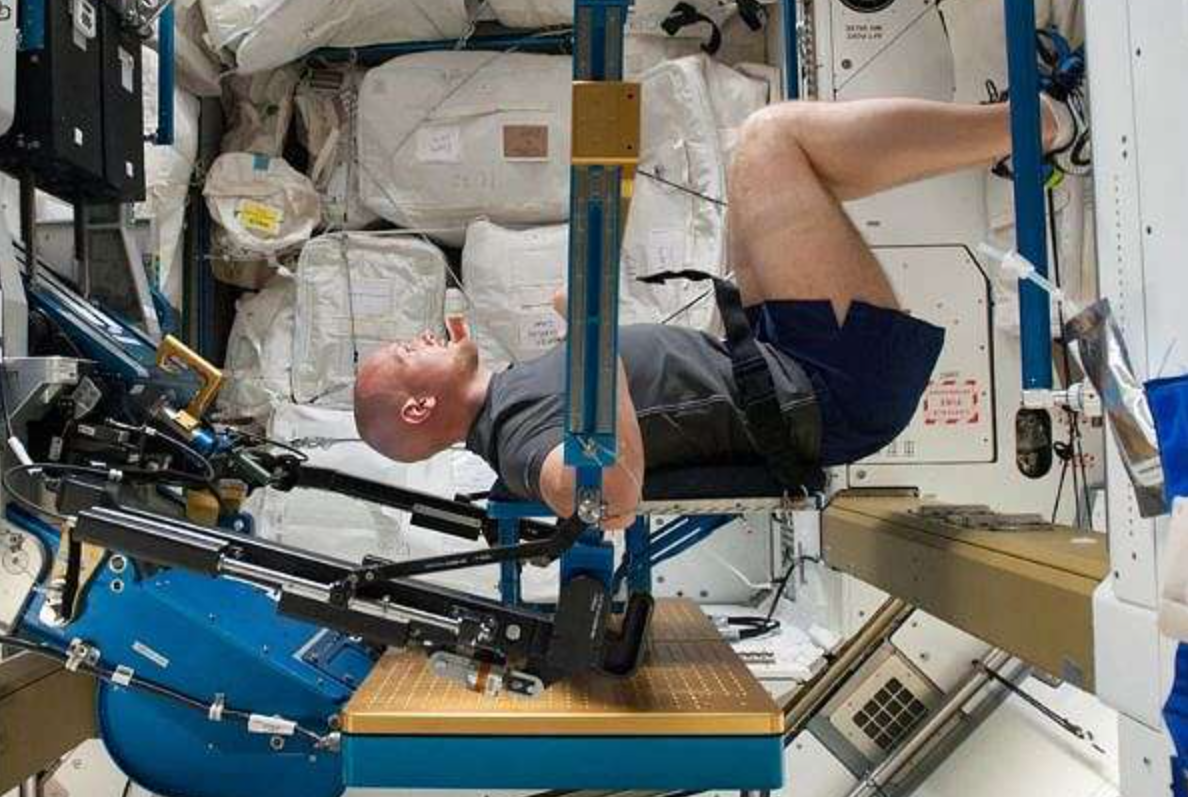First-ever study reveals the impact of space travel on the human immune system
Astronauts have faced numerous health challenges due to the extreme conditions of space travel, particularly the effects of reduced gravity

For decades, astronauts have faced numerous health challenges due to the extreme conditions of space travel, particularly the effects of reduced gravity. Among these challenges, the immune system's response to microgravity has remained a significant concern.
Recently, a team of scientists from the Buck Institute, led by David Furman, PhD, and Daniel Winer, MD, in collaboration with Christopher E. Mason, PhD, from Weill Cornell Medical College, made groundbreaking discoveries on how gravity—or the lack thereof—affects immune cells at the most detailed level yet.
Published in the journal Nature Communications, their study reveals how microgravity impacts immune cells and proposes potential "space nutraceuticals" to counter these effects. “We show how simulated microgravity shapes immune cells and how the changes in force alter the cells’ function at the single cell level,” said Winer. “This level of resolution is new and exciting in understanding the effects of microgravity on cells.”
Using cells exposed to simulated microgravity, the researchers pieced together a comprehensive picture of how various immune cells in the peripheral blood, such as lymphocytes and monocytes, are influenced by reduced gravity. These cells play crucial roles in our body's defense mechanisms.
The team utilized data from astronauts and mice on the International Space Station (ISS) to validate their findings, highlighting how the conditions in space mirror certain aspects of immune aging seen on Earth. This connection suggests that the research could have broader implications beyond space travel, potentially offering insights into immune aging on our planet.
“Our work provides a resource to better understand how and why the immune system changes in simulated microgravity and spaceflight,” explained Furman. “We also provide a way to develop countermeasures to maintain normal immunity under these harsh conditions.”
Related Stories
Uncovering the Mechanisms Behind Immune Dysfunction
Astronauts in low Earth orbit, like those on the ISS, often experience immune system problems, including infections, reactivation of latent viruses, and heightened skin sensitivity, even during short missions. While previous studies have shown that microgravity impairs various immune functions, the underlying mechanisms remained largely unclear.
To delve deeper, the researchers, led by co-first authors Fei Wu, PhD, and graduate student Huixun Du, examined how 25 hours of simulated microgravity affected immune cells from 27 healthy donors aged 20 to 46. They used a Rotating Wall Vessel, a NASA-developed device, to simulate the microgravity conditions.
Employing advanced techniques such as sequencing and super-resolution microscopy, the team compared their findings with data from other space missions, including those from JAXA’s Cell-Free Epigenome study, SpaceX’s Inspiration 4 mission, NASA’s Twins Study, and spleens from ISS-housed mice.
“Interestingly, changes in mechanical forces appear to orchestrate immune cell function,” noted Winer. His interest in space medicine was sparked by exploring mechanoimmunology, a field studying how environmental forces influence immune cells. This research is paving the way to understand how to support the immune system in the unique conditions of space.
Potential Solutions: Finding the Right Compounds
The study didn't stop at identifying the issues; the team also sought solutions. After pinpointing several genes and pathways affected by microgravity, they used machine learning technology to search for compounds that could protect immune cells. This technology, developed by Furman at the Buck Institute, can analyze over 2 million interactions between genes and various drugs or foods.
One promising candidate emerged from their search: quercetin. This plant pigment, commonly found in red onions, grapes, berries, apples, and citrus fruits, is known for its antioxidant and anti-aging properties. Remarkably, quercetin was found to reverse about 70% of the cellular changes caused by microgravity and protected the cells from damage due to excess reactive oxygen species.
“These findings define hallmarks of immune cell alteration in simulated microgravity, with correlation to spaceflight exposures in mice and humans,” said Winer. “This work helps define avenues for future research in mechanoimmunology and astroimmunology and provides opportunities to develop countermeasures to maintain normal cellular function in space.”
Broader Implications: Beyond Space
The implications of this research extend far beyond space exploration. Furman emphasized that the study sets a new standard for analyzing the physiological changes that accompany space travel. “This is the first comprehensive study that provides the scientific community worldwide with an atlas to understand human biology in this extreme condition,” he remarked.
Excitingly, the researchers are now looking at how their findings could apply to aging on Earth. They aim to use their insights to design interventions that could potentially reverse the immune dysfunction that comes with aging.
The groundbreaking work of these scientists not only advances our understanding of how microgravity affects the immune system but also opens up new avenues for enhancing human health both in space and on Earth. As we continue to push the boundaries of space exploration, research like this ensures that we are better prepared to protect and sustain the health of those who venture beyond our planet.
For more science and technology stories check out our New Discoveries section at The Brighter Side of News.
Note: Materials provided above by The Brighter Side of News. Content may be edited for style and length.
Like these kind of feel good stories? Get the Brighter Side of News' newsletter.
Joshua Shavit
Science & Technology Writer | AI and Robotics Reporter
Joshua Shavit is a Los Angeles-based science and technology writer with a passion for exploring the breakthroughs shaping the future. As a contributor to The Brighter Side of News, he focuses on positive and transformative advancements in AI, technology, physics, engineering, robotics and space science. Joshua is currently working towards a Bachelor of Science in Business Administration at the University of California, Berkeley. He combines his academic background with a talent for storytelling, making complex scientific discoveries engaging and accessible. His work highlights the innovators behind the ideas, bringing readers closer to the people driving progress.



